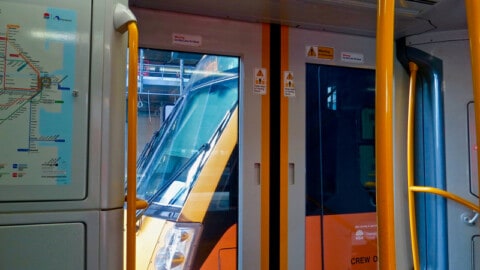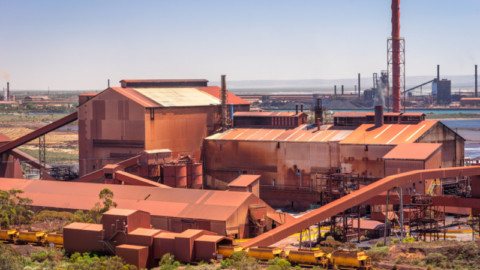The NSW Productivity Commission has released its productivity white paper, Rebooting the economy, which provides recommendations for smarter use of infrastructure and natural resources.
The NSW Productivity Commission said the white paper provides a pathway to higher wages and better living standards for NSW citizens, alongside a reduced state debt without additional taxation.
The report was prepared over the past three years with extensive consultation and proposes 60 opportunities to increase productivity by focusing on areas including talent, innovation, housing, infrastructure and natural resources.
The report showcases numerous recommendations for the infrastructure industry, stating that investing in the right infrastructure is a “powerful lever by which the Government can raise productivity.”
NSW Productivity Commissioner, Peter Achterstraat AM, said the white paper suggested a range of options on how to boost the economy in the face of changing work patterns and altered demographics, both of which had been further heightened by COVID-19.
“Opportunities in this white paper build on the progress already made, and are designed to realise a broader reform agenda aimed at facilitating the state’s post COVID-19 recovery,” Mr Achterstraat said.
“The report helps pave the way to delivering a skilled and high-performing workforce to enable us to improve outcomes which will lead to higher wages and better-quality services for everyone.
“When we improve educational opportunities, from cradle to retirement, reduce road congestion and change the way we commute, we unlock greater efficiencies and improve our citizens’ quality of life.”
Priority recommendations from the whitepaper include:
- Developing a long-term vision for the water sector and prioritise approaches to meeting the economy’s water needs
- Engaging on water recycling to showcase and build trust in new water supply options
- Supporting a cost-effective energy transition through the National Electricity Market
- Expanding higher density development within transport hubs
- Developing a portfolio of travel demand choices and measures to reduce congestion on roads and public transport
Other key recommendations for the infrastructure sector include:
- Plan for greater housing and business activity in areas where there is spare infrastructure capacity
- Improve transparency to create the right incentives for good infrastructure investment
- Ensure that agencies’ business cases align with Government guidelines and that funding is given to properly evaluate projects
- Investigate a package of light-touch options to address road congestion, including measures that promote good driving behaviour, encourage off-peak travel and target investments at congestion hot spots
- Assess how Opal fares and concessions can be used more effectively to manage public transport demand and support those that need it the most
These recommendations are based on the reports key findings that:
- Poorly coordinated land use planning and infrastructure delivery can generate community resistance to growth and impose high costs on Government
- Infrastructure investments are among the most expensive and important decisions governments make. Identifying and prioritising the right projects can have lasting benefits. Choosing badly can impose substantial costs on society.
- Infrastructure bottlenecks are a drag on productivity. Road congestion and public transport crowding cost individuals and businesses valuable time and make New South Wales a less attractive place to live and work.
NSW Treasurer, Dominic Perrottet, thanked Productivity Commissioner, Peter Achterstraat, for his work on the white paper, which followed the release of a Green Paper in August 2020.
“I want to congratulate and thank Peter for the work he has done,” Mr Perrottet said.
“We will carefully consider the ideas in this report and our collective challenge is to debate these opportunities, identify those that we should proceed with, and then find practical pathways that lead to a better NSW as a result.”
Mr Achterstraat said the NSW Government had already accepted some of the draft recommendations proposed in the 2020 Green Paper, with many in their early stages of implementation, such as reducing regulatory restrictions for small businesses.
“This report finalises the work of the commission over the past three years and lays a pathway to future economic growth and prosperity for New South Wales,” Mr Achterstraat said.
“As part of the commission’s future work program, we will continue to explore new opportunities with stakeholders to inform our advice to the government.
“Ongoing reform will ensure we continue to reap the long-term benefits driven by productivity growth — to deliver a firm foundation for our state to build better quality of life for the people of New South Wales.”
To find out more, click here.

















